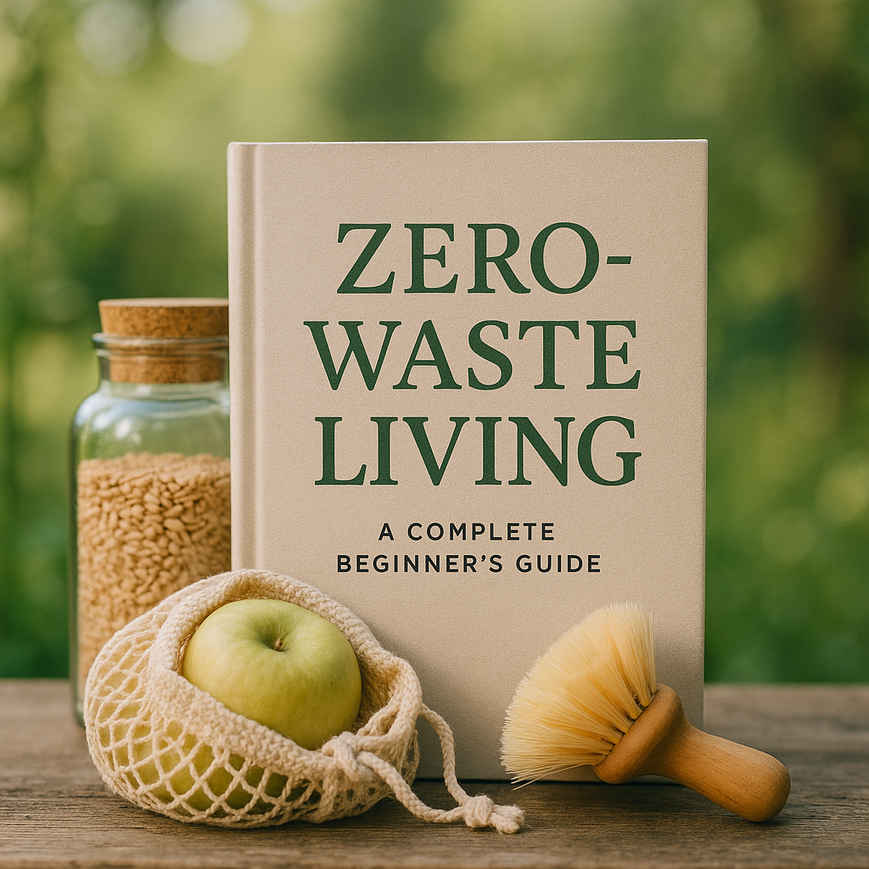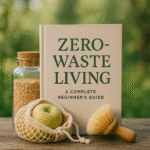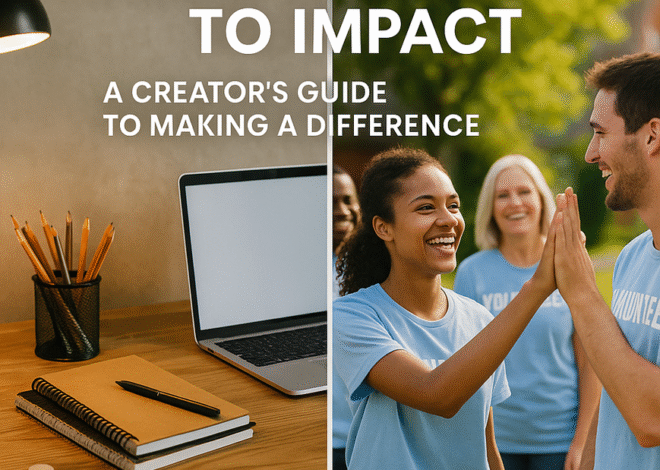
Zero-Waste Living: A Complete Beginner’s Guide
“`html
Introduction to Zero-Waste Living
Zero-waste living is a lifestyle philosophy that encourages reducing waste to the absolute minimum. It emphasizes rethinking how we use products in our daily lives, shifting from a linear “take-make-dispose” model to a circular one where materials are reused, recycled, or composted. The core principle is to aim for “none” in waste, fostering a more sustainable future.
The environmental importance of zero-waste living cannot be understated. By minimizing waste, we reduce landfill contributions and lower greenhouse gas emissions from decomposing trash. Furthermore, zero-waste practices contribute to conserving natural resources and decreasing pollution associated with manufacturing and transportation of goods. It leads to a lesser ecological footprint, promoting biodiversity and healthier ecosystems. For a deeper dive into related subjects like mindfulness in consumption, check out our articles on mindfulness techniques and urban gardening.
Understanding Waste: Common Types and Their Impact
In zero-waste living, understanding the various types of waste is crucial. This includes organic waste, recyclable materials, and hazardous waste. Organic waste, such as food scraps, has significant environmental implications as it decomposes in landfills, releasing methane, a potent greenhouse gas. Recyclables, while they can be processed into new products, often end up in landfills due to contamination or improper sorting. Lastly, hazardous waste, including batteries and electronics, poses serious risks to both health and the environment if not disposed of correctly.
Leading a zero-waste lifestyle can help mitigate these impacts by promoting better sorting practices and reducing the creation of waste in the first place. For more information on recycling, you can check resources like the EPA.
Easy Zero-Waste Swaps for Beginners
Embracing a zero-waste lifestyle can seem daunting, but making simple swaps can significantly reduce your environmental impact. Here are some easy-to-implement changes:
- Reusable Bags: Instead of single-use plastic bags, opt for lightweight, reusable shopping bags made from cotton or recycled materials. Carry a few in your car or purse to ensure you always have one on hand.
- Eco-Friendly Packaging: When shopping for groceries, look for products with minimal or compostable packaging. Brands like EarthHero offer a range of items with sustainable packaging options.
- Bulk Buying: Purchase items in bulk using your own containers to reduce packaging waste. Stores like Bulk Barn allow customers to bring their containers, making this swap both practical and sustainable.
- Bamboo Toothbrushes: Swap out plastic toothbrushes for bamboo ones. They are biodegradable and just as effective for dental hygiene.
- Cloth Napkins and Towels: Replace paper towels and napkins with cloth alternatives. This not only cuts down on waste but also saves money in the long run.
- Compost: Start composting kitchen scraps such as fruit peels, vegetable trimmings, and coffee grounds. Composting reduces landfill waste and creates nutrient-rich soil for gardening. Home composting systems can be easily found online or at local gardening stores.
- Digital Over Paper: Reduce paper waste by opting for digital communications and documents whenever possible. Utilize apps and cloud storage to keep records and notes.
- Refillable Water Bottles: Invest in a refillable water bottle instead of buying bottled water. Many cities have clean tap water, and using a filter can enhance the quality.
- Second-Hand Shopping: Thrift stores and online platforms like thredUP are excellent sources for clothing, furniture, and more, promoting recycling and reducing the demand for new products.
- Recycle Correctly: Familiarize yourself with your local recycling rules to ensure recyclable materials are disposed of properly.
By integrating these swaps into your daily routine, you contribute to a significant reduction in waste and promote a sustainable lifestyle. For more on sustainable practices, check out our posts on urban gardening and community resilience.
Building Zero-Waste Habits and Routines
To effectively adopt a zero-waste lifestyle, developing habits and routines that align with this philosophy is key. This starts with a commitment to mindful consumption, such as making conscious decisions about what to buy and how to dispose of it. It may also involve regularly decluttering your space and understanding the lifecycle of the products you use daily.
Establishing a routine might include taking specific days for bulk shopping, composting, and organizing recyclable materials. Over time, these activities can become naturally integrated into your overall lifestyle, leading to sustainable behavior changes that ripple out to influence others around you.
Resources and Community Support for Zero-Waste Living
Essential resources for zero-waste living encompass a variety of books, blogs, and apps that can provide guidance on minimizing waste in daily life. Notable books include *”Zero Waste Home: The Ultimate Guide to Simplifying Your Life by Reducing Your Waste”* by Bea Johnson, which outlines practical steps for living with less waste, and *“The Zero Waste Lifestyle: Live Well by Throwing Away Less”* by Amy Korst, which offers insights on reducing waste in both home and lifestyle.
Several influential blogs serve as excellent resources: *”Going Zero Waste”* by Kathryn Kellogg offers tips and inspiration for sustainable living, while the *”Zero Waste Collective”* features articles and resources focused on the zero-waste journey. Mobile apps like *”Ecosia,”* which plants trees with search revenues, and *”OLIO,”* which connects neighbors to share surplus food, also promote sustainable practices.
Connecting with local zero-waste groups is invaluable for community engagement. Organizations such as the *Zero Waste International Alliance* and local chapters of *Surfrider Foundation* often host events and workshops. Platforms like *Meetup* can help find or create local zero-waste groups where individuals can share tips, participate in clean-up events, and inspire collective action towards waste reduction.
To further inspire and spread awareness about zero-waste living, consider hosting workshops or community events focused on techniques like upcycling, composting, or bulk buying. Engaging local schools and community centers in sustainability challenges or zero-waste campaigns can also create a ripple effect, encouraging broader participation in the movement. Resources from blogs and books can be shared during these events, fostering a sense of community and collective responsibility towards a sustainable future. For additional insights on creating supportive communities, explore our article on Building Community in an Isolated World, where you can find practical steps that align with zero-waste initiatives.
Sources
- Eater – Plastic Packaging Alternatives for Sustainable Eating
- EPA – Recycling Basics
- Bulk Barn – Bulk Shopping Options
- thredUP – Online Thrift Store
“`







